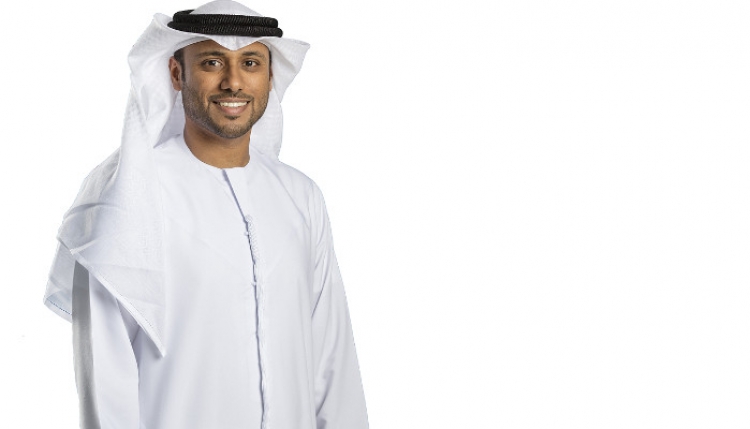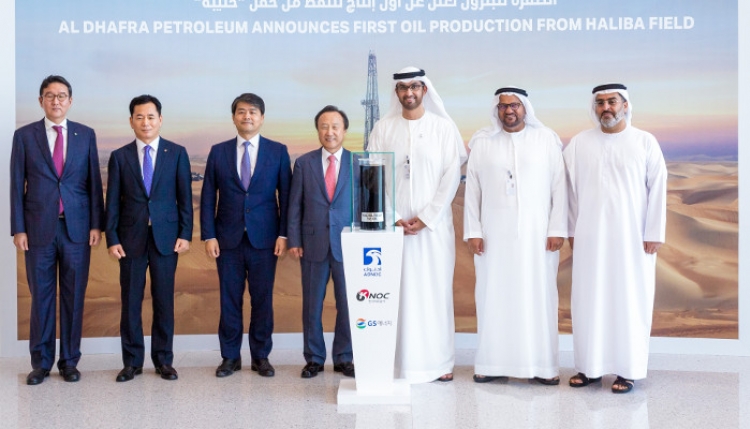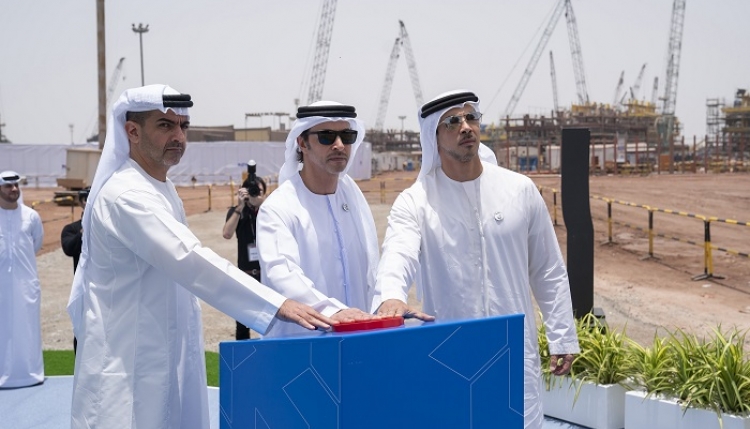Abu Dhabi - MENA Herald: The first commercial-scale carbon capture, utilisation & storage (CCUS) facility in the Middle East & North Africa (MENA) is now operational and aims to sequester up to 800,000 metric tons of carbon dioxide (CO₂) per year, it was announced today.
Developed by Abu Dhabi’s Carbon Capture Company Al Reyadah, a joint venture between Abu Dhabi National Oil Company (ADNOC) and Masdar, the Abu Dhabi Future Energy Company, the project harnesses CO₂ emitted by a major Abu Dhabi steel producer, Emirates Steel Industries (ESI), before injecting it as a substitute for rich gas into the emirate’s oil reservoirs to help enhance their output.
His Excellency Dr Sultan Ahmed Al Jaber, UAE Minister of State, ADNOC CEO and Chairman of Masdar, officially unveiled the groundbreaking CCUS facility this morning accompanied by a delegation of senior government and industry officials including His Excellency Sheikh Abdulla Mohamed Al Hammed, Chairman of the Energy Authority and member of the Abu Dhabi Executive Council; His Excellency Suhail Mohammad Faraj Faris Al Mazrouei, UAE Minister of Energy; His Excellency Dr Thani Ahmed Al Zeyoudi, Minister of Climate Change and Environment; and His Excellency Dr Ahmed bin Abdullah Humaid Belhoul Al Falasi, Minister of State for Higher Education Affairs.
Based in Abu Dhabi’s Mussafah industrial area next to Emirates Steel Industries, Al Reyadah’s inaugural CCUS project started construction in July 2013. The project is one of only 22 large-scale CCUS ventures, either in operation or under construction worldwide, and the first to capture CO₂ from an iron and steel works.
“The launch of this first commercial-scale CCUS project in the MENA region further demonstrates the UAE’s global energy leadership, and its ongoing commitment to advancing the industry through the application of innovative technology,” said HE Dr Al Jaber. “Al Reyadah is a prime example of how clean technology can be integrated with traditional energy to create efficiency and optimise resources.”
“This project will allow for the more productive use of a valuable commodity, natural gas, whether for power generation, or as petrochemicals feedstock, or for export,” he added. “It also unlocks another potential revenue stream in the industrial sector, encouraging the wider application of commercially viable CCUS technologies globally.”
Al Reyadah, meaning ‘leadership’ in Arabic, is the first company in the MENA region focused on developing commercial-scale CCUS projects. The CCUS technology now deployed in Abu Dhabi will free up more natural gas for electricity generation, water desalination and other industrial uses while enhancing oil recovery.
His Excellency Suhail Mohammad Faraj Faris Al Mazrouei, Minister of Energy, said: “I would like to congratulate ADNOC, Masdar and ESI on the successful completion and commissioning of this landmark project. Al Reyadah demonstrates the true potential behind integrating hydrocarbon resources and clean technology to maximise value. Al Reyadah also reinforces the United Arab Emirates’ successful efforts to drive innovation through the implementation of cutting-edge technology, which contributes to our national agenda of building a knowledge-based economy.”
“Investment in carbon capture utilisation & storage technology is an investment in helping the world mitigate the impacts of climate change,” said His Excellency Dr Thani Ahmed Al Zeyoudi, Minister of Climate Change and Environment.
“Al Reyadah exemplifies how the UAE is committed to climate action and responsible energy production through private and public sector partnerships, and it positions the UAE amongst the pioneers of this cutting-edge technology whilst allowing for continued energy production to meet our export targets.”
The technology works in three stages. Carbon dioxide is first captured on site at the Emirates Steel manufacturing complex before being compressed and dehydrated. The third step involves conveying the CO2 via a 43-kilometre underground pipeline for Enhanced Oil Recovery (EOR) injection into ADNOC’s NEB (Al Rumaitha) and Bab onshore oilfields.
Abdulmunim Al Kindy, Chairman of Al Reyadah and ADNOC’s Director of Exploration & Production, said: “Al Reyadah brings together the decades-long experience and operational expertise of ADNOC and Masdar’s proven ability to innovate commercially viable and clean technology solutions that enable us to capture carbon, enhance oil recovery and liberate gas. It’s a win-win innovation.”
“Over the last ten years, Masdar has played a leading role in the development of the future energy economy,” added Mohamed Al Ramahi, Chief Executive Officer of Masdar, which has invested US$2.7 billion in the development of renewable energy and clean technologies in the MENA region and international markets, and today has 2.7 gigawatts (GW) of gross power generating capacity either deployed or under construction.
“Today’s inauguration of Al Reyadah’s first CCUS project highlights Masdar’s emergence as a global leader in the clean energy industry, as well as the increasing diversity and sophistication of our commercial activities,” Al Ramahi said. “CCUS technology has obvious potential in a region earmarked for significant industrial expansion over the next decade.”
Today’s unveiling is the latest in a series of milestones that Masdar has announced in recent months. The Dudgeon offshore wind farm that it is co-developing secured project financing worth GBP1.3 billion in May; a Masdar-led consortium was appointed to build phase three of the Mohammed Bin Rashid Al Maktoum Solar Park in Dubai in June; while Abu Dhabi’s renewable energy company also concluded a power purchase agreement last month to deliver Jordan’s largest solar power plant.
“Emirates Steel, the UAE’s largest steelmaking facility, is the first steelmaker in the world to capture its CO₂ emissions,” added Saeed Al Romaithi, Chief Executive Officer of Emirates Steel. “Through this unique collaboration, we are aiming to capture, reuse and store 800,000 tonnes of CO₂ from our steel plant each year, supporting Abu Dhabi’s sustainability objectives.”
A joint venture between ADNOC (51%) and Masdar (49%), Al Reyadah is potentially the first phase of an industrial-scale CCUS network aimed at reducing the carbon footprint of the Abu Dhabi economy and supporting the expansion of a low-carbon power generation industry.
“Al Reyadah is striving to achieve excellence across human capital development, performance improvement, operational efficiency and profitability, in line with the strategic objectives of ADNOC Group as it continues to raise its profile among world-class energy companies,” said Arafat Al Yafei, Chief Executive Officer of Al Reyadah.
“Our existing CCUS project is part of a larger vision to expand EOR activities through the utilisation of CO₂,” he added. “With anthropogenic CO₂ available in significant volumes from various industrial sources, it is our objective at Al Reyadah to meet ADNOC’s demand for CO₂, supporting its ambitious plans to increase oil and gas production capacity while at the same time contributing to the UAE’s overall sustainable growth strategy, as well as the global effort to mitigate climate change.”
The International Energy Agency believes that carbon capture & storage technologies have a key role to play in realising an ambitious, climate-friendly future energy scenario and are expected to account for one sixth of required emissions reductions by 2050.










